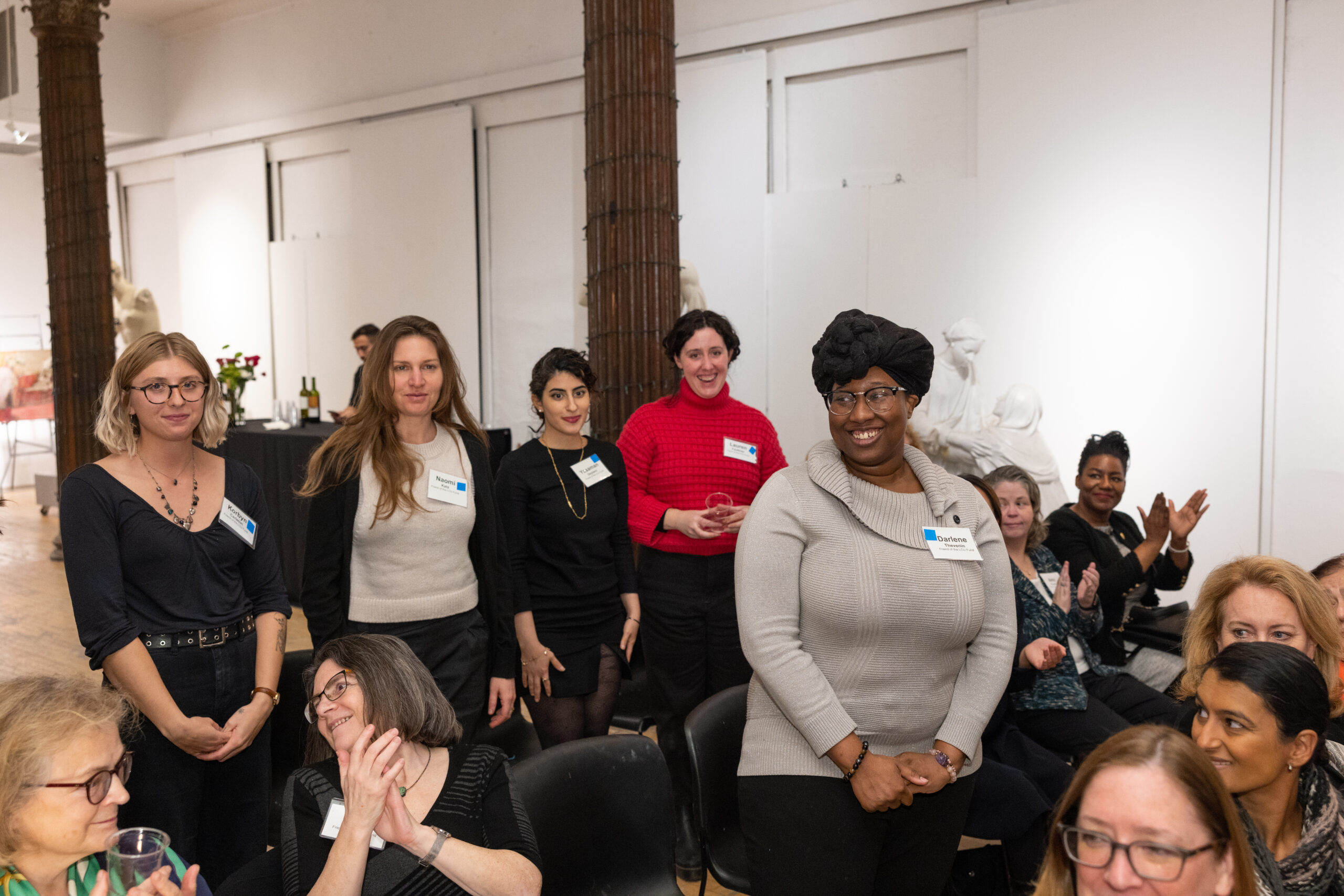Before COVID, Jaleesa Lopez, a Bronx resident and mother of two, was spending over 50% of her salary on rent. Even with the occasional influx of welfare and unemployment assistance, she struggled to make ends meet.
When she started her degree at Lehman College in 2020, money was still tight. She was working in a service job to pay the bills. Then she got laid off due to COVID. At one point, while on unemployment, 70% of her salary was going to rent, she said. Even when she started working again, she could not afford to pay for her apartment.
“If I paid my rent at the time, there was no way I could afford anything else for my kids and me,” she said.
That’s before Lopez received an email about the LCU Fund for Women’s Education, a private foundation that assists low-income female scholars with rent costs while they pursue their studies. It was the first time Lopez had seen a grant that was directed towards single mothers like her. After she was accepted, she received funding for two months of rent each semester until she graduated.
“The LCU grant helped to relieve some of my financial stress. When it comes to school, any little load off my back can help me to excel in my studies,” Lopez said.
The LCU Fund, founded in 1858, seeks to use housing as a gateway for college completion. The group originally provided communal living spaces for young, single women coming to New York City before becoming a foundation in 2001.
Sara Espinosa, LCU Fund’s executive director, said it is the only funder to make the connection between housing and education.
According to the LCU Fund’s website, it has awarded nearly $15 million to 2,600 scholars. They have worked with 35 educational institutions – among them the New York Academy of Art, Juilliard, the Jewish Theological Seminary and a handful of CUNY schools – and currently have a portfolio of 16 grantee schools, according to Espinosa.
The private foundation focuses its funding on scholars who are preparing for careers that will serve the community, such as social work, education, the arts, public administration and religious leadership, said Espinosa.
The fund has made a real difference for women like Lopez, who grew up in the foster care system and had somewhat of a circuitous path in education. The 33-year-old said she took several breaks from school during her late teen years and 20s, notably to give birth to her son and her daughter.
Finding housing during those years also presented a challenge. Lopez said she spent a year living at a shelter with her son.
All the while, she was intent on getting an education. She graduated from Hostos Community College in 2014 with a degree in gerontology and then, more than five years later, she decided to enroll at Lehman.
Now, degree in hand, Lopez works at Jewish Child Care Association (JCAA) in the South Bronx as a case manager in prevention and child-parent psychotherapy. Her own experience in the foster care system colors her work.
“To know how the system works and their frustrations, it helps me be more understanding [of] them,” she said of her clients.
Lopez is not the only Bronxite to excel after assistance from the LCU Fund. Nadia Mustefa, 27, grew up in Harlem and Riverdale and spent her post-college years working as a teacher in the South Bronx before pivoting to medical administration. She recently completed a 15-month accelerated master’s program in nursing at Columbia University.
The school discourages students from working during the program, said Mustefa, so after receiving a school email about the LCU Fund, she jumped on the opportunity.
“It’s really just like keeping your eye out for those lending hands because it might seem like there’s no money out there but there really is,” she said.
Mustefa was awarded $5,000 per semester to help cover the costs of her apartment in Marble Hill in the Bronx.
She considers the award a blessing, knowing that many women and low income people must often compromise their goals and their studies to pay for rent.
“I really hope that [LCU] see[s] the difference they are making and they continue this program and even expand it if possible…” she said.

